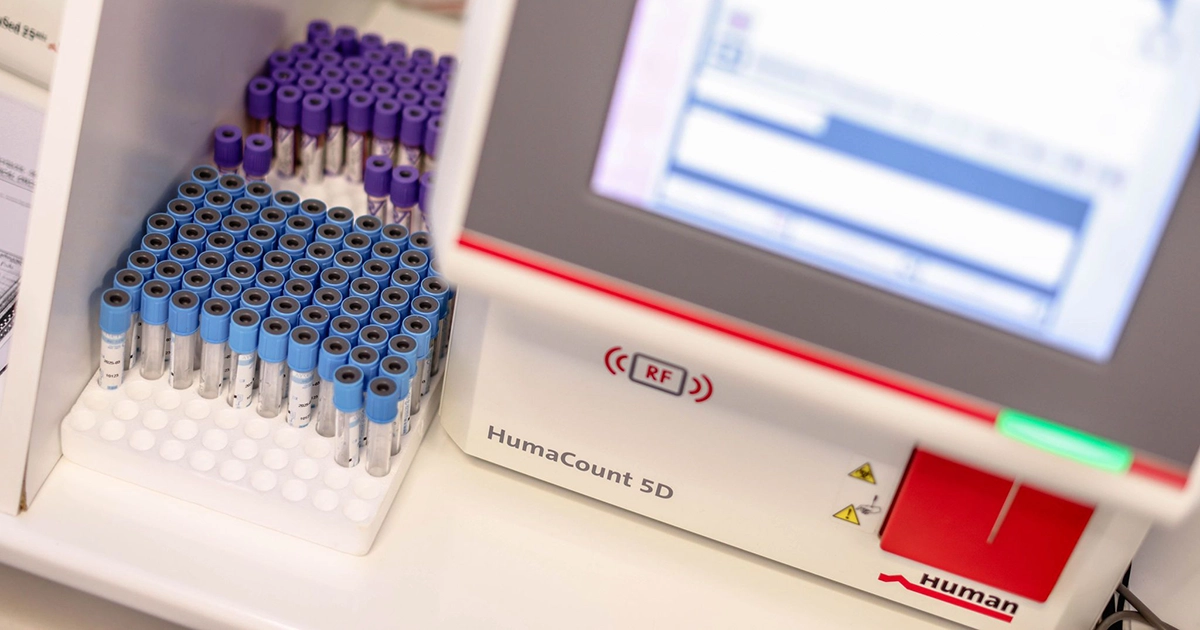
Clinical laboratory is a set of physicochemical, biochemical and biological research methods that enable the study of the composition and properties of human biological fluids (e.g. blood) and tissues in order to detect pathological processes occurring in the body.
Laboratory tests contribute to the:
During treatment, your doctor may need to prescribe repeated additional tests to monitor the effectiveness of your treatment regimen.
Different profile tests are performed at the Institute of Clinical Oncology. The laboratory is equipped with modern automated analyzers. The following tests are conducted on the US-produced biochemical automated analyzer MEDICA eazy Ra, FUJIFILM:
Hematological tests are performed at modern, Germany-produced 5 part 29 parameters Humstar 5 D automated analyzer.
General analysis of Urine is performed on a Combylizer 13 analyzer. The laboratory performs immunological studies for the diagnostics of endocrine and oncological pathologies, and metabolic disorders and for treatment monitoring.
Tests on immunoassay analyzer Snibe MAGLUM 800, tests are performed using the chemiluminescence method and include various test systems.
Laboratory study of endocrine gland function:
Cancer markers:
Also, the level of vitamins in blood sugar is measured
Blood coagulation system examination is performed on a German-produced automated analyzer CV 600.
All the tests performed in the lab are permanently involved in International external quality control (ESFEQA, GMBH) and daily internal quality control is conducted that provides accuracy and reliability of tests.
The key principle of the laboratory operation is to perform each analysis with the highest possible accuracy in a short timeframe.
Dont miss Koi news